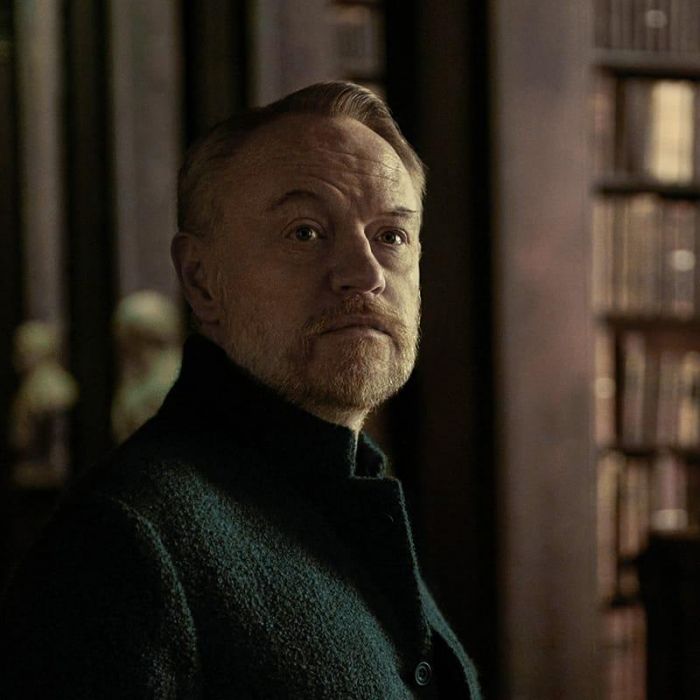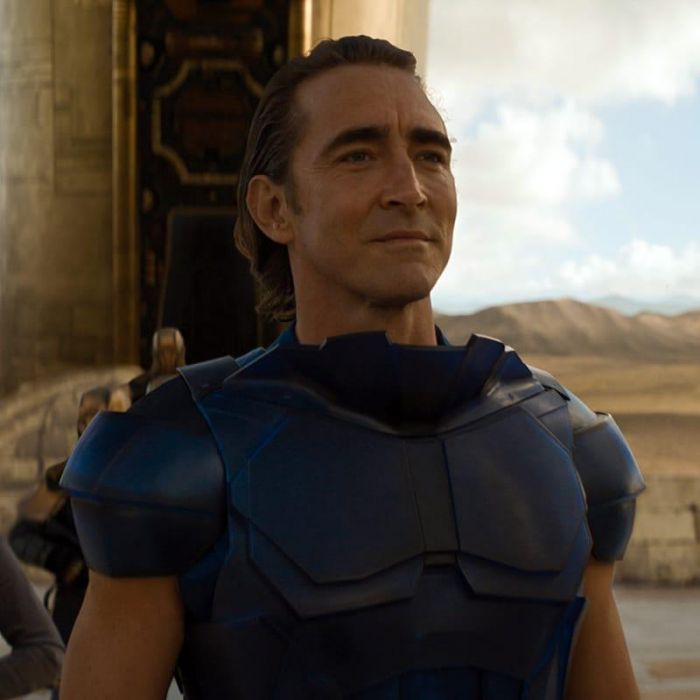Apple TV’s Foundation is certainly ambitious. But is it any good?

From the very first episode, it’s obvious that Apple considers Foundation a prestige series, and as a result, has spared no expense. Everything about Foundation — which is adapted from Isaac Asimov’s celebrated sci-fi series — looks fantastic, from the striking galactic vistas to the elaborate sets, production design, and special effects. As envisioned by creators David S. Goyer and Josh Friedman, Foundation offers a fully-realized fictional world that’s ambitious in every way imaginable.
To be clear, I will always prefer to watch something that’s too ambitious even for its own good, that throws caution to the wind and goes for broke. And that’s certainly the case with Foundation. That being said, the series’ sense of ambition often gets in the way of its own story, resulting in a first season that I admired and respected more than actually enjoyed.
Disclaimer: I haven’t read any of Asimov’s original stories, so I can’t speak to the faithfulness of Goyer and Friedman’s adaptation. Instead, I’ll be evaluating on the series on its own merits.

In the far distant future, humanity has spread throughout the galaxy. For millennia, all human affairs have been overseen by the vast Galactic Empire, which is in turn ruled by the Genetic Dynasty, a centuries-old series of clones based on the first Emperor. By all indications, humanity is living in a golden age overseen by benevolent monarchs. And then along comes a brilliant mathematician named Hari Seldon.
Using an elaborate mathematical system called “psychohistory,” Seldon predicts that the Galactic Empire is, in fact, on the verge of collapse. What’s more, unless drastic measures are taken, humanity will enter a dark age lasting 30,000 years. After a deadly terrorist attack reveals the cracks in the Empire’s façade, Seldon and his followers — which include a young prodigy named Gaal Dornick — are exiled to a distant planet in order to start the Foundation, a repository of culture and knowledge intended to help humanity survive the impending chaos.
However, a terrible betrayal threatens to undermine Seldon’s Foundation even before it begins. Meanwhile, the Genetic Dynasty must face rising challenges to their reign, including religious fanatics and insurgencies, that seem to prove the truth of Seldon’s predictions.

Let’s begin with what’s good about Foundation. As mentioned before, it looks fantastic, rivaling any number of Hollywood movie productions (as befitting its $45 million budget). But more importantly, Foundation feels believable due to its impressive world-building. The various technologies on display, which are appropriately fantastical and yet still grounded; the various political and religious factions; the legacy of the emperors that make up the Genetic Dynasty — all of these details amount to a world that’s vibrant and alive. Which, in turn, makes the notion of an impending dark age feel like an actual threat.
Populating this world is an array of colorful characters. There’s the aforementioned Gaal Dornick, who abandoned her ultra-fundamentalist upbringing in order to pursue mathematics. Salvor Hardin is the stalwart warden who guards the burgeoning Foundation on its frontier home. And the three brother emperors — Brother Dawn, Brother Day, and Brother Dusk — possess an intricate familial relationship that’s by turns loving and menacing.
But the simple fact is that Foundation tries to cram way too much into its first ten episodes. Almost 200 years’ worth of events, to be precise. The origins of Foundation, Gaal’s pilgrimage, Salvor’s battle to keep Foundation safe (and understand her mysterious abilities), the Genetic Dynasty’s trials, tribulations, and abuses, Seldon’s predictions and behind-the-scenes manipulations… all of these storylines vie for dominance. So much happens so quickly — and all of it super important, natch — that it’s easy to feel like you’ve missed an episode containing information that’s vital to fully comprehending what’s going on.
Indeed, you find yourself wishing that the season had another episode or two if only to give the existing storylines more space in which to unfold at a more graceful pace. Instead, Foundation occasionally stops dead in its tracks so that a character can give a long speech that’s basically a massive info dump — as if the show’s writers suddenly realized they needed to answer some questions and get everyone up to speed as quickly as possible.
To their credit, the cast does their best with the portentous dialog and harried storytelling. Lee Pace turns in a particularly strong performance as Brother Day, the Genetic Dynasty’s most prominent member. Day is charismatic, arrogant, and ruthless, but Pace makes him almost sympathetic at times, particularly in the season’s latter half. Laura Birn shines as Demerzel, the enigmatic woman who guides and advises the emperors even as she wrestles with her own crisis of faith. And I would be remiss not to mention Daniel MacPherson’s performance as Hugo, the rogue-ish pilot who’s also Salvor Hardin’s lover, and who brings some welcome levity to the series.

The benefit of Foundation’s first season being so packed is that much of the narrative heavy-lifting has been done. Which means that the already-approved second season can slow down and let the storylines breathe and develop more smoothly.
There will, of course, be more twists and turns — one major revelation from the first season is bound to generate plenty of drama and conflict — but hopefully, Foundation’s staff will figure out a way to explore them without resorting to info dumps, awkward cliffhangers, or ragged jumps in time.
I say all this because Foundation has the potential to be the sort of sci-fi show we can really use right now.
In its best moments, Foundation is an engaging series about the triumph of human reason and rationality in the face of fear, tyranny, and despotism. Yes, it gets a little preachy at times, particularly when certain characters wax rhapsodic about the virtues of math and science. But there’s something fundamentally optimistic about Foundation that can be very refreshing — so long as it doesn’t undermine itself.
